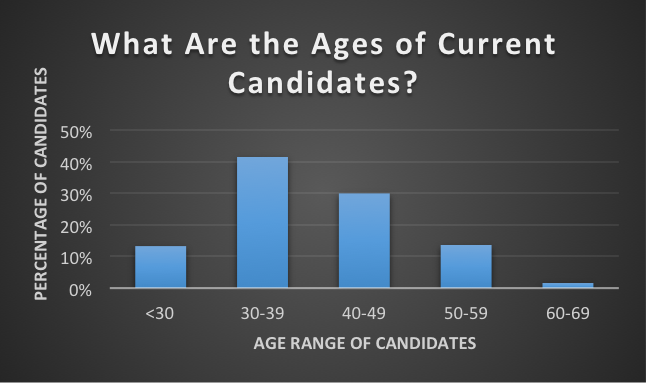As the next candidate cycle begins on April 1, 2016, many educators around the country will ask themselves, “Is now the right time to consider National Board Certification?” or “Am I ready to become a candidate?”
I remember asking similar questions when I saw an information session flyer about Board certification posted on a bulletin board in the teacher workroom at my school. I was very curious! Board certification was highly regarded; unfortunately, I did not know any National Board Certified Teachers (NBCTs). The whole thing was a mystery.
I remember thinking about the “what’s” and “why’s” – wondering what certification was and how it was different from other professional credentials. Then, I thought about the “who’s” – wondering what kinds of teachers pursued certification. I wondered if certification was a “fit” for me. I thought, “Was I ready? Could I do it?”
Who are the educators seeking National Board certification?
Fortunately, meeting other candidates and NBCTs removed these concerns. Attending the information session, I met other teachers who had the same questions. We were a diverse group of educators.
So, if you are wondering about the educators pursuing Board certification, here are some facts about current candidates:
1) Candidates represent all corners of the teaching profession.
Sometimes potential candidates wonder if they are too young or too old, or if they’ve had enough teaching experience. How old are candidates? The median age of a current candidate is 38 years old. According to the US Department of Education’s School and Staffing Survey, the median age of a public school teacher in the US is 41 years. When looking at the age frequency distribution of current candidates, all ages are represented – there are many candidates below 30 years old and there are many candidates above 50 years of age. Chances are you fit in somewhere in the graph, and you will have other candidates in your age range.

If you have the three-year minimum required experience that National Board requires for candidacy, then certification is a viable choice regardless of your age.
2) Board certification is an integrated part of a teacher’s professional accomplishments.
Some educators debate whether to pursue a graduate degree or board certification. Over 66% of candidates have a Masters as their highest degree. (In comparison, 48% of US teachers have a masters as their highest level of attainment.) A small percentage of candidates have doctorates and other professional degrees. Board certification fits in any order of lifelong learning. Indeed, many NBCTs continue their professional development after certification.
Candidates are mostly teachers; though other educators seek certification. Candidates are also staff developers, higher education faculty, administrators, and central office staff. They represent the full range of professional roles. (Of note, board certification is also available for school counselors and library media specialists.)
Therefore, given these characteristics, readiness is not about age, time in the classroom, prior achievements, or choosing between future achievements. The more relevant and meaningful question is:
What are you looking for in your next challenge?
A Professional and Personal Challenge
Many educators pursue certification for professional reasons. The majority of both NBCTs and candidates describe the process as one of their most rewarding professional development experiences. In many states and districts, there are supports and incentives for certification.
Others pursue certification for the personal challenge. Board certification is a highly respected and important achievement supported by research and the education community.
A Deeper Classroom Emphasis
There are other meaningful reasons to pursue certification. From my own perspective, I wanted an opportunity that would focus on my teaching and help me become a more effective professional. I wanted an experience that would challenge me to analyze and reflect on my classroom practice. I wasn’t sure that a graduate degree would give me that daily practical emphasis. I wasn’t ready to consider leaving the classroom if I pursued an administration endorsement.
National Board Certification filled that gap between teacher leadership and school administration – providing a way to analyze, develop, and reflect on what mattered most – my students.
And that’s what differentiated the candidacy experience from other opportunities. The process was about my students, classroom, and who I was as a teacher. I could see my students and my practice in what I crafted for my candidacy. No other professional accomplishment or experience I have pursued since certification has given the same level of personal connection to the reasons I became a teacher.
If you are still debating candidacy, think about what you want to get out of your next professional and personal challenge.
You will know it’s the right time to consider National Board Certification.
